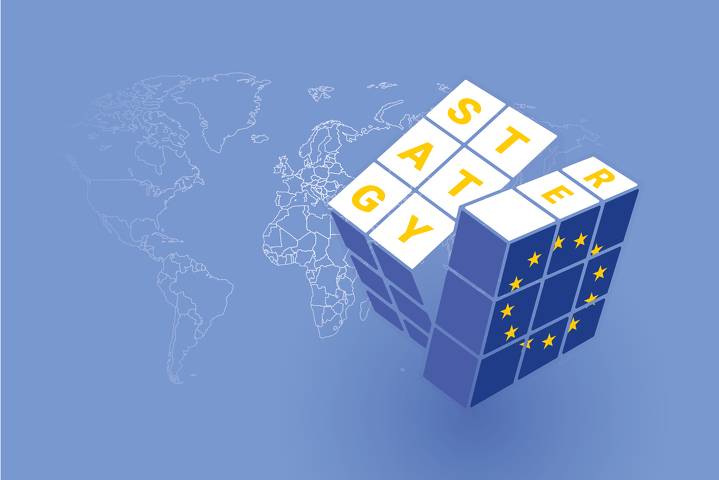The Brussels Office of the Antall József Knowledge Centre organised an online expert exchange titled Changing Europe’s Global Role and the Impact of the Transition on the Central European Region on 2 June 2021.
In his opening remarks, Dr Balázs Hamar, Head of the Antall József Knowledge Centre’s Brussels Office highlighted two main factors that have recently had influence on Europe’s position on the global stage: technological competition and the economic consequences of the COVID-19 pandemic. During the panel discussion moderated by Dr Hamar Balázs, experts Dr Giovanni Grevi, Dr Boglárka Koller, Dr Łukasz Jurczyszyn and Dr Ludger Kühnhardt discussed the major factors that affect Europe’s role on the international stage and to identify the policy areas on which the European Union has to focus.
Giovanni Grevi, Senior Associate Fellow at the European Policy Centre in Brussels defined European strategic autonomy as the ability of Europeans’ to make their own choices, to set their own priorities and the capacity of Europeans to implement those choices in cooperation with others. Strategic autonomy is not an alternative to multilateralism but rather a means to managing interdependencies based on an identification of European interests in a more and more challenging international environment. From a policy point of view, strategic autonomy is an interface between internal and external action and its implementation will have to be differentiated between the Member States. Boglárka Koller, Head of Department of European Studies and Vice-Rector for International Affairs at the University of Public Service of Hungary provided a brief summary of the normative basis of Europe’s strategic autonomy. Dr Koller highlighted the importance of the democratisation of normative power in the future of the EU’s strategic goals. According to Łukasz Jurczyszyn, Director of the Brussels Office, Polish Institute of International Affairs (PISM) the EU’s relations to the US are traditionally very strong and therefore collective defence should be kept a joint priority. China has recently emerged as a major threat from an American point of view and this might fundamentally change President Biden’s priorities on the international scene. Russia is still a threat to European strategic autonomy and therefore the Southern and Eastern flank of the NATO should be reinforced. Furthermore, the EU should safeguard its credibility in the Western Balkans and enhance its enlargement efforts. Professor Ludger Kühnhardt, Director of the Center for European Integration Studies (ZEI), Bonn University told that the world sees a unique transformation where we are about to enter into a truly global age. The EU so far has practiced ‘selective multilateralism’ but the transformational power that the COVID-19 pandemic had on the multipolar world is even bigger than the World Wars’. Following the decisions of the Next Generation EU package, the EU has become a player on the capital markets, extending its influence to a new area. Speakers agreed that a differentiated approach should be applied within the EU and a selective course of action should be allowed to the external world based on shared European values and interests.
The event was realised with the support of the Prime Minister’s Office of Hungary and the Bethlen Gábor Foundation.

